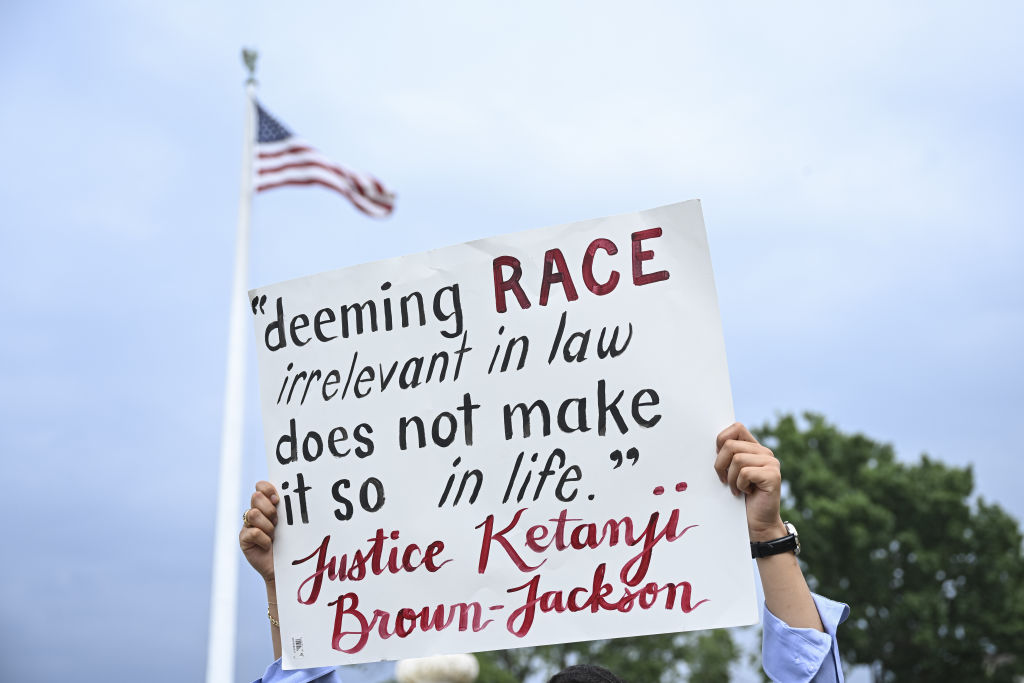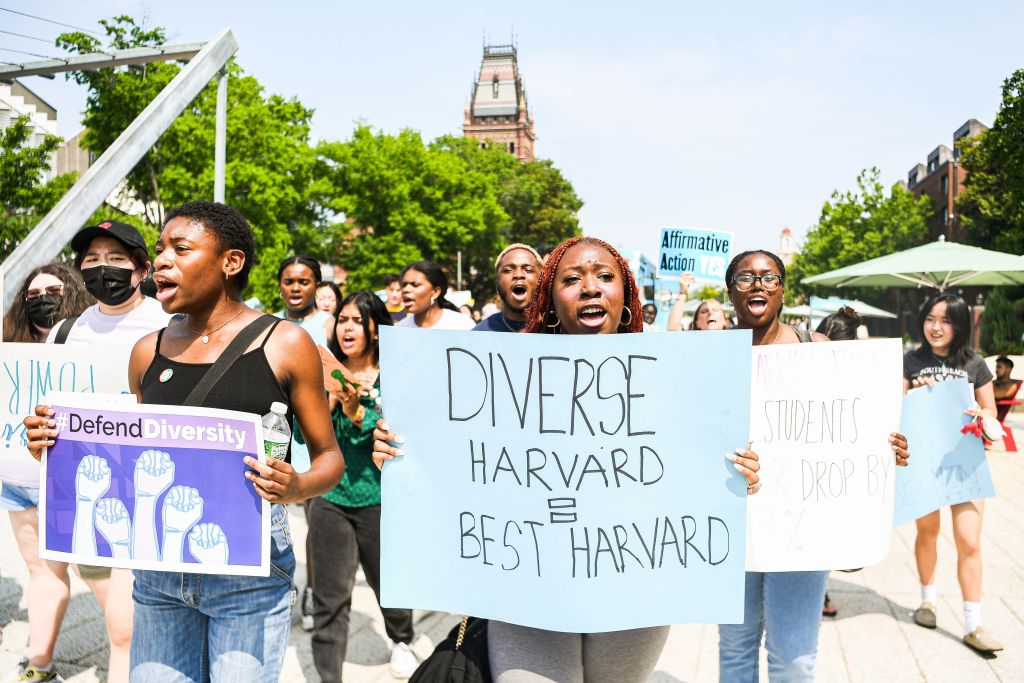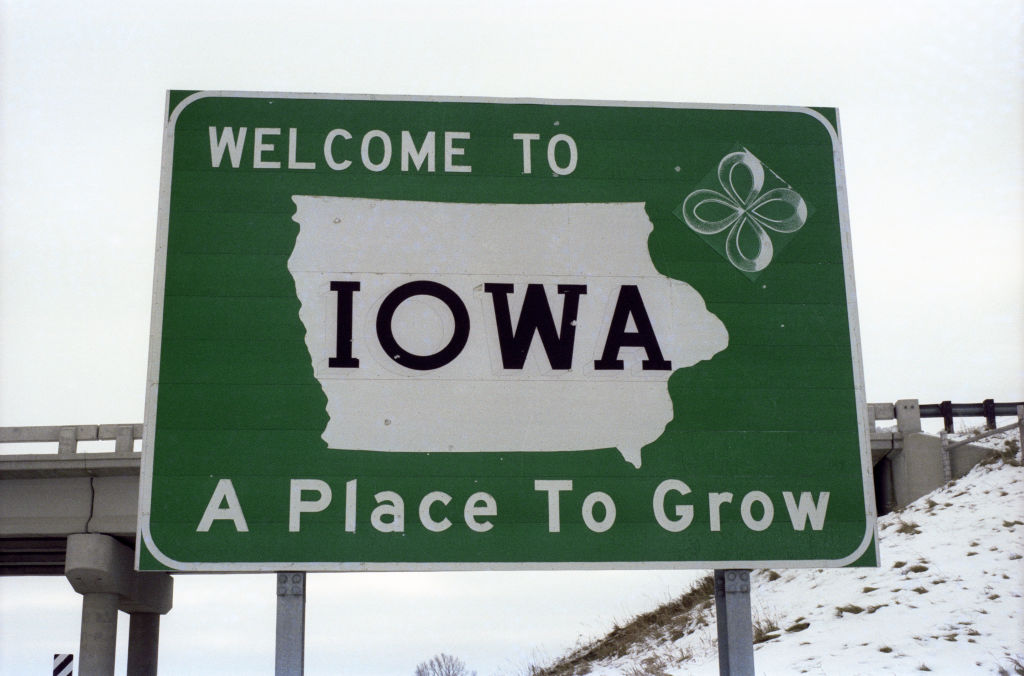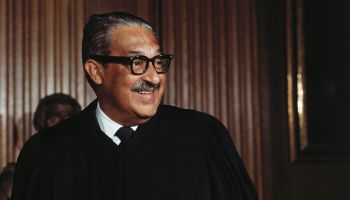
Source: Anadolu Agency / Getty
The United States Supreme Court decided last week to dismantle years of progress toward a level playing field in higher education. In the Students for Fair Admissions (SFFA) v. University of North Carolina and Students for Fair Admissions v. Harvard University decision, the court has willfully ignored the fact that the vestiges of racial discrimination and inequality in this country persist.
In a breathtaking acknowledgement of this willfulness and hypocrisy the court at the same time determined that military academies are exempted. The carve-out is a deeply disturbing contrast that harkens back to America’s darkest moments. Diversity in military academies is as imperative to our nation’s interests as it is throughout higher education, to decide otherwise is deeply sinister and undermines our greatest domestic and national security interests. The carve-out is a direct admission that it is precisely our diversity that makes the United States exceptional.
Writing in 1903, acclaimed African American intellectual W.E.B. Du Bois declared “the problem of the twentieth century is the problem of the color line.” With last week’s ruling to end consideration of race in college admissions, the Supreme Court of the United States now appears intent on perpetuating the color line as a rooted problem of the twenty-first century as well.
The court’s ruling further legitimized what countless scholars and university presidents argued was a disingenuous attempt at advocating for equity in college admissions, particularly at elite colleges and universities where acceptance rates remain in the single digits, upwards of 90% of students admitted graduate within four years, and athletes, children of donors and alumni will continue to retain their favored status. Over 2,300 entities – from major corporations and military officials to civil rights leaders – filed dozens of amicus briefs with the court underscoring the need to uphold affirmative action.

Protesters demonstrate on Harvard University Campus in Cambridge, Massachusetts, on July 1, 2023, against the Supreme Court’s ruling to end affirmative action. | Source: Xinhua News Agency / Getty
If the justices who ruled in favor of this decision and states with conservative legislatures really want to enact this ruling equitably then I invite them to demand that all college coaches craft their rosters without consulting game film and any in-person evaluations or interactions with their recruits. Since admissions offices are now being asked to evaluate students with just their attributes on paper, then this should be sufficient for their colleagues in the athletic departments of the SEC, ACC and Big Ten as well.
The fact of the matter is that with the exception of Historically Black Colleges and Universities – and more recently institutions with majority Hispanic populations – Black and Latino students are underrepresented on America’s college campuses with their populations rarely eclipsing double-digit percentages when international students are not factored into the equation. Were the court really invested in broadening access to higher education it would be upholding student debt forgiveness programs, bolstering efforts to keep costs as low as possible at this nation’s public institutions, increasing penalties for companies conducting predatory student loan practices and ruling in favor of efforts to expand acceptance rates at elite institutions.
Until the Court shows any interest in equalizing measures, SCOTUS is shamefully doing nothing more than upholding this nation’s beleaguered color line and is diminishing our global standing and competitiveness.
U.S. Rep. Gregory Meeks, the chairman of the Congressional Black Caucus Political Action Committee, ranking member of the House Foreign Affairs Committee and senior member of the House Committee on Financial Services, has represented the Fifth Congressional District of New York since 1998.
SEE ALSO:
HBCU Leaders Suggest Affirmative Action Ending Can Affect HBCU Enrollment
Ferguson Movement Leader Says Clarence Thomas Makes Valid Points In Affirmative Action Case

























